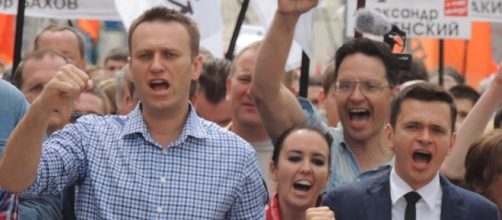The Russian Central Election Commission said on Friday that Alexei Navalny, the leader of the opposition, cannot vie for the Presidency. Navalny has a previous criminal conviction. In a statement, the commission said that Navalny had failed its integrity test, and would, therefore, be not allowed to vie against current President Vladimir Putin.
Corruption charges
Navalny was tried and found guilty of embezzling funds in February. The court then slapped him with a five-year suspended prison sentence. He claimed the court case was an effort to end his Presidential ambitions.
Navalny was also apprehended and temporarily incarcerated by Russian authorities for allegedly assaulting a police officer. The attack reportedly took place during a protest in March. He would go on to spend 25 days in prison for organizing rallies against Vladimir Putin's government. Russia has been grappling with mass protests in recent weeks. People have been turning up in large numbers in cities across Russia, protesting against perceived corruption in Vladimir Putin's government. For years, Navalny has campaigned against corruption in Russia. In April, he was assaulted with a form antiseptic green dye at his Moscow offices. The dye attack nearly turned him blind.
Oligarch influence
In March, the politician released a 50-minute video.
In the documentary, Navalny accused Russia's ex-President and current Prime Minister Dmitry Medvedev of building a corruption empire worth billions. According to Navalny, Medvedev reportedly employed several charities run by close associates to accrue the illicit wealth. Navalny went on to accuse Medvedev of receiving donations from Russia's Oligarchs.
Many wealthy oligarchs own controlling stakes in firms which monopolize key industries such as oil and energy. The Oligarchs, such as Chelsea FC owner Roman Abramovic, are also rumored to be part of President Vladimir Putin's inner circle of associates and advisers.
Term limits
President Putin is expected to vie for a fourth term in office.
As a result, he has come hard and has on dissent, real or perceived. Russia's laws state that a president can only serve two consecutive terms at a time. As a result of the rules, Putin briefly stepped down. He then served as Prime Minister under the Medvedev presidency between 2008 and 2012. Russia's constitution does not specify how many times in total a Russian president is allowed to serve. Medvedev extended the length of a single presidential term from four to six years.


